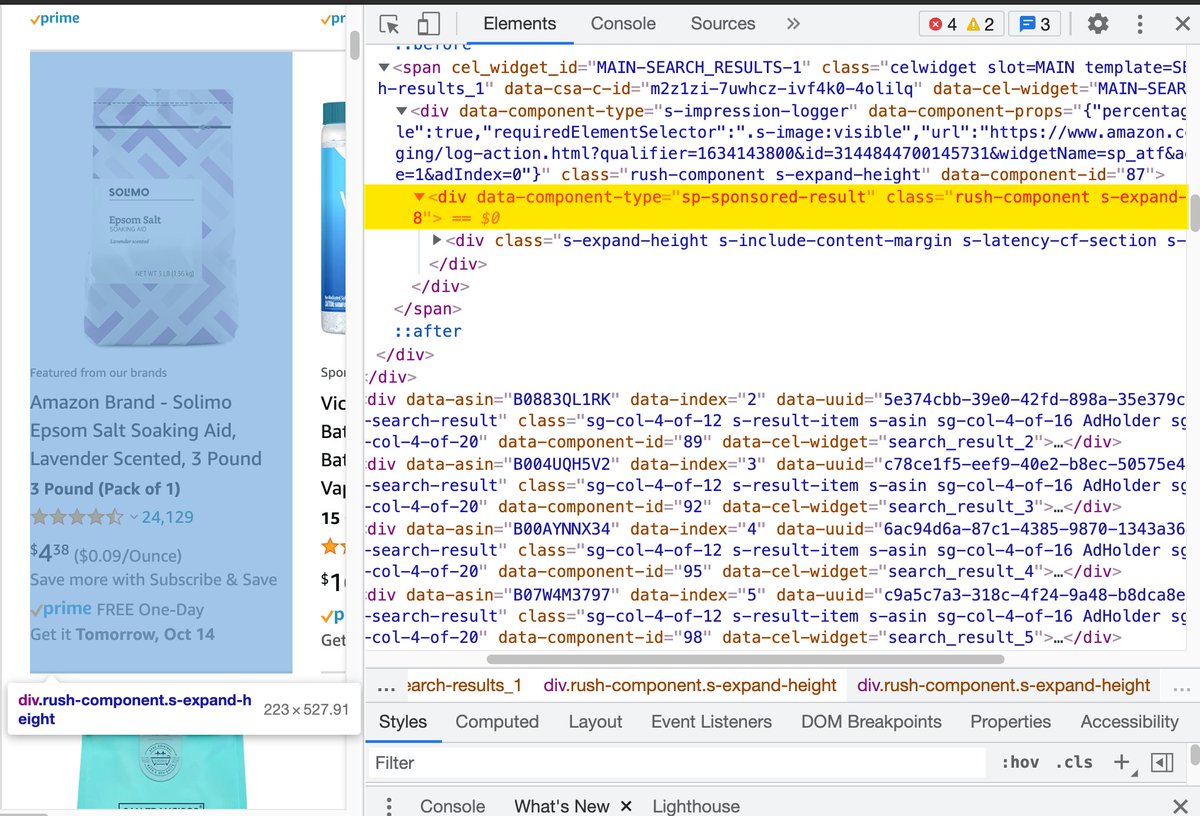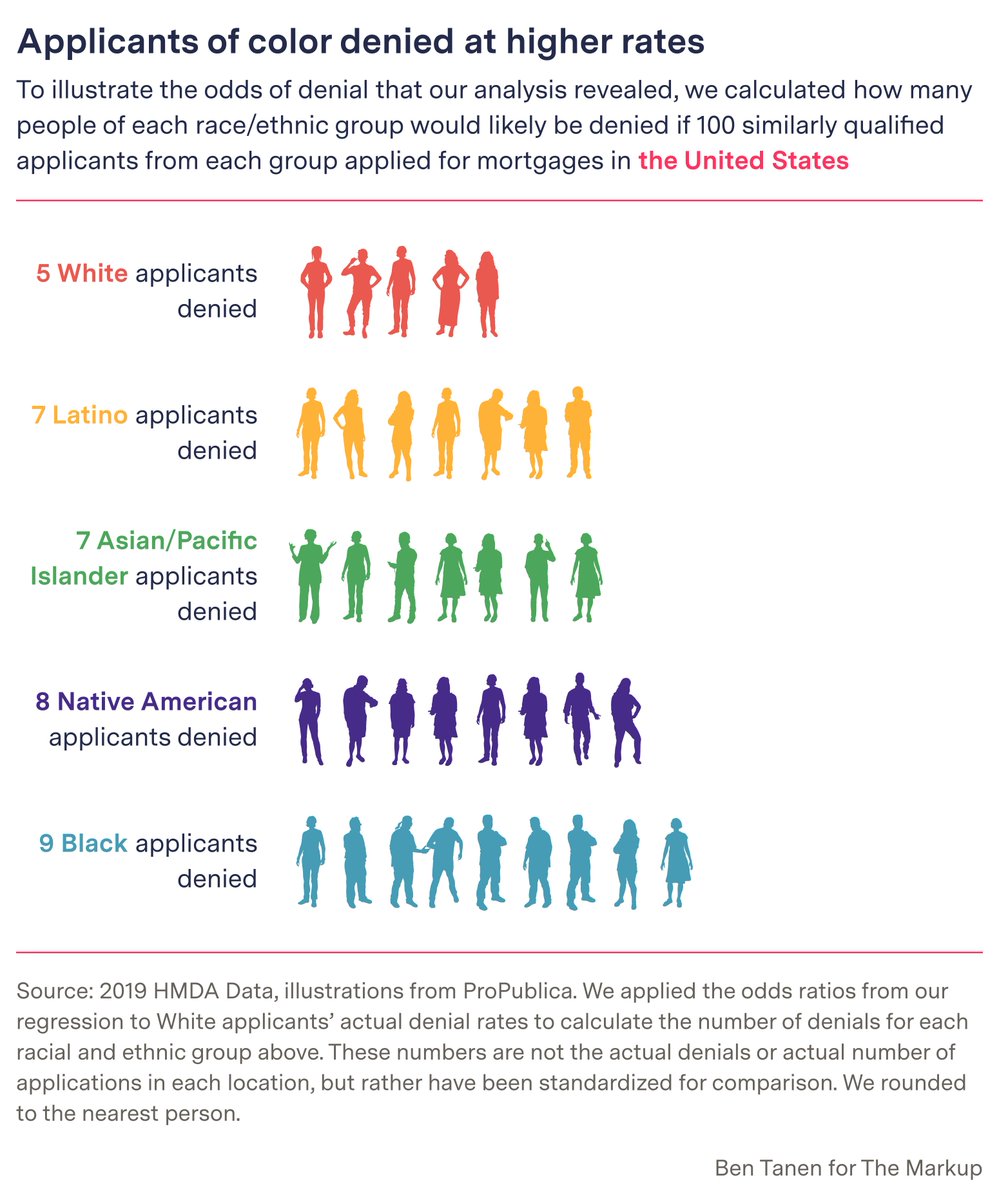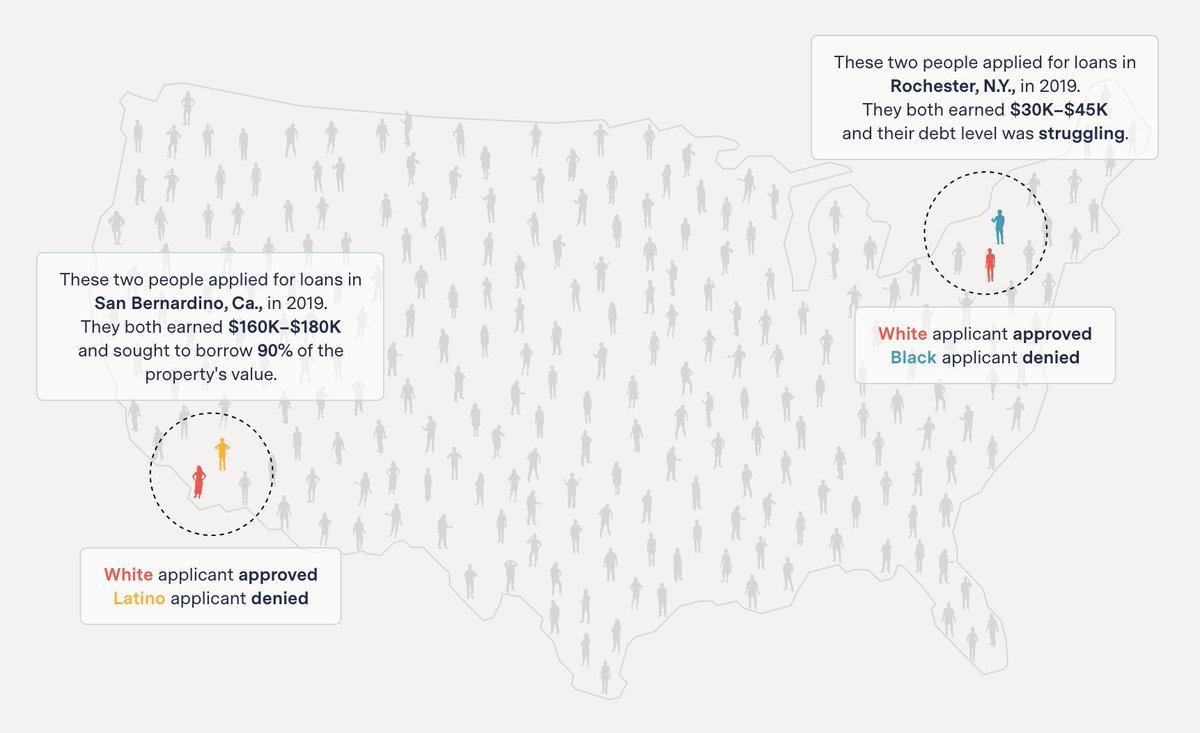
NEW: Amazon placed items from its house brands and exclusives ahead of competitors with better customer ratings and more sales, @adrjeffries and @leonyin found after examining the results of nearly 3,500 popular product searches. themarkup.org/amazons-advant…
Take Amazon’s Happy Belly Cinnamon Crunch cereal, for example.
It had four stars and 1,010 reviews, but Amazon gave it the number one search result spot, ahead of Cap’n Crunch, which had five stars and 14,069 reviews.
It had four stars and 1,010 reviews, but Amazon gave it the number one search result spot, ahead of Cap’n Crunch, which had five stars and 14,069 reviews.
We found that knowing only whether a product was an Amazon brand or exclusive could predict in seven out of 10 cases whether the company would rank the item first in search results.
You read that right. Seven out of 10.
You read that right. Seven out of 10.
When we looked at products’ star ratings and number of reviews, neither could predict much better than a coin toss which product Amazon placed first in search results.
This isn’t what shoppers expect. We commissioned a national survey and only 17% of respondents assumed Amazon put its own products first.
An Amazon spokesperson said the company doesn’t favor its brands in search results and declined to answer any of the dozens of specific questions we posed.
We were unable to find a public database of Amazon brands and exclusives, so we built our own.
We ultimately identified more than 150 Amazon house brands and 137,000 unique house brand and exclusive products.
Even then, we know this list isn’t complete.
We ultimately identified more than 150 Amazon house brands and 137,000 unique house brand and exclusive products.
Even then, we know this list isn’t complete.
Amazon’s inconsistent labeling leaves consumers in the dark.
We commissioned a national survey and found that nine in 10 respondents didn’t know that Amazon’s highest-selling house brands, apart from Amazon Basics, were owned by the company.
We commissioned a national survey and found that nine in 10 respondents didn’t know that Amazon’s highest-selling house brands, apart from Amazon Basics, were owned by the company.

Amazon told us it identifies merchandise from its brands by adding the words “Amazon brand” to the title or to a list of details on the product page.
We only found this to be the case in 23% of Amazon brand products in our sample.
We only found this to be the case in 23% of Amazon brand products in our sample.
We also found that in 87% of cases, Amazon brands and exclusives listed first said “sponsored” in the source code.
Amazon publicly labeled the products “featured from our brands,” not “sponsored.”
The company told us these weren’t ads but “merchandising.”
Amazon publicly labeled the products “featured from our brands,” not “sponsored.”
The company told us these weren’t ads but “merchandising.”

A former associate director at the Federal Trade Commission said that what Amazon is calling “merchandising” are advertisements. 

By giving its brands and exclusives top billing, Amazon is also giving itself a significant leg up in sales.
The first three items on the search results page get 64% of clicks, according to one ex-Amazon employee-turned-consultant.
searchenginejournal.com/amazon-search-…
The first three items on the search results page get 64% of clicks, according to one ex-Amazon employee-turned-consultant.
searchenginejournal.com/amazon-search-…
Smaller sellers have felt the impact.
One, Robert Gomez, told us he spent months working to rank well in search results, but when Amazon introduced competitor products, those “ranked well right away.”

One, Robert Gomez, told us he spent months working to rank well in search results, but when Amazon introduced competitor products, those “ranked well right away.”


At The Markup we show our work. Dig into how we came to these conclusions in our methodology. themarkup.org/amazons-advant…
• • •
Missing some Tweet in this thread? You can try to
force a refresh






